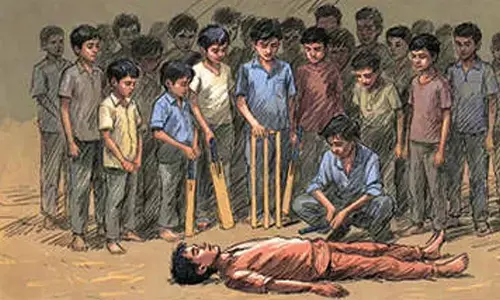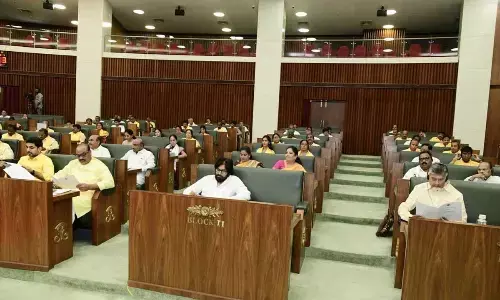Davanagere Dalit girls turn Devadasis

Davanagere Dalit Girls Turn Devadasis, Supreme Court, Karnataka, National Shame. Recently, the Supreme Court uttered stun over the “proposed” commitment of numerous dalit girls as Devadasis at Davangere district of Karnataka on the occasion of full moon day and the SC directed Karnataka’s chief secretary to take steps to stop it instantly.
 Recently, the Supreme Court uttered stun over the “proposed” commitment of numerous dalit girls as Devadasis at Davangere district of Karnataka on the occasion of full moon day and the SC directed Karnataka’s chief secretary to take steps to stop it instantly. The supreme court of the civil and penal justice explained the age-old practice as a national shame.
Recently, the Supreme Court uttered stun over the “proposed” commitment of numerous dalit girls as Devadasis at Davangere district of Karnataka on the occasion of full moon day and the SC directed Karnataka’s chief secretary to take steps to stop it instantly. The supreme court of the civil and penal justice explained the age-old practice as a national shame.
While ordering the registry to communicate the court’s order at once to the chief secretary, the penal also issued notices to the Centre, National Commission for Women (NCW) and states of Maharashtra, Andhra Pradesh and Tamil Nadu where the practice was competed to be still rampant. According to NCW, over 2.5 dalit women were devoted to temples in both Karnataka-Maharashtra borders.
Even if barred, the Devadasi system continues, forcing girls into a life time of sexual exploitation. The supplicant also required immediate direction to the Centre and states to take steps to stop the practice and rehabilitate the victims.Devadasi is a religious and sacred practice that consists of the votive offering of girls to the deities in Hindu temples. The devotion usually takes place before the girl reaches puberty and entails the girl to become sexually accessible for community members. Traditionally, it is considered that these girls are serving society as designed by the goddess.
Initially, in addition to nursing the temple and executing rituals, these women learned and practiced Sadir (Bharatanatya), Odissi, Kuchipudi and other classical Indian creative traditions and enjoyed a lofty social status as dance and music were important part of temple worship. After getting married wealthy patrons, they used to spend their time whetting their skills as opposed to becoming a housewife. Their children were also trained their skills of music or dance. Their patrons had often one more wife who served them as housewife.
Of late, the devadasi system has found disappear, having been barred in all of India. This is fairly an evil practice, which triumphed in Karnataka and it passed on to the servant of god. On behalf of god, women are sexually hassled by community people. Such women must not get wedded to one man, as she is servant to deities and spouse of whole society. The change established in colonial times. Pedagogical dispute what the British believed in the tradition, but their company meant that kings and other patrons of temples misplaced their power and much of their economic influence.
Today, the system is witnessed as a means for indigent parents to alleviate themselves of daughters. However, their destiny was known, parents used religion to cheer up themselves, and the money earned was shared.
Compared to other social evils, devadasi practice is the pits practice, which humiliates women in society. Because of devadasi practice, there is increase in prostitution, for the sake of devotion. Deeming this reality, the governments have approved legislation to ban devadasi practice and also to regenerate the existing devadasis. But even today, it is not perfectly disappeared in Karnataka. Thus, it is important on the part of the Non-Governmental Organizations and voluntary associations to increase awareness amid common people against such evil acts on women. For this purpose, there is need for perfect education among the poor, lower class and rustic people.








